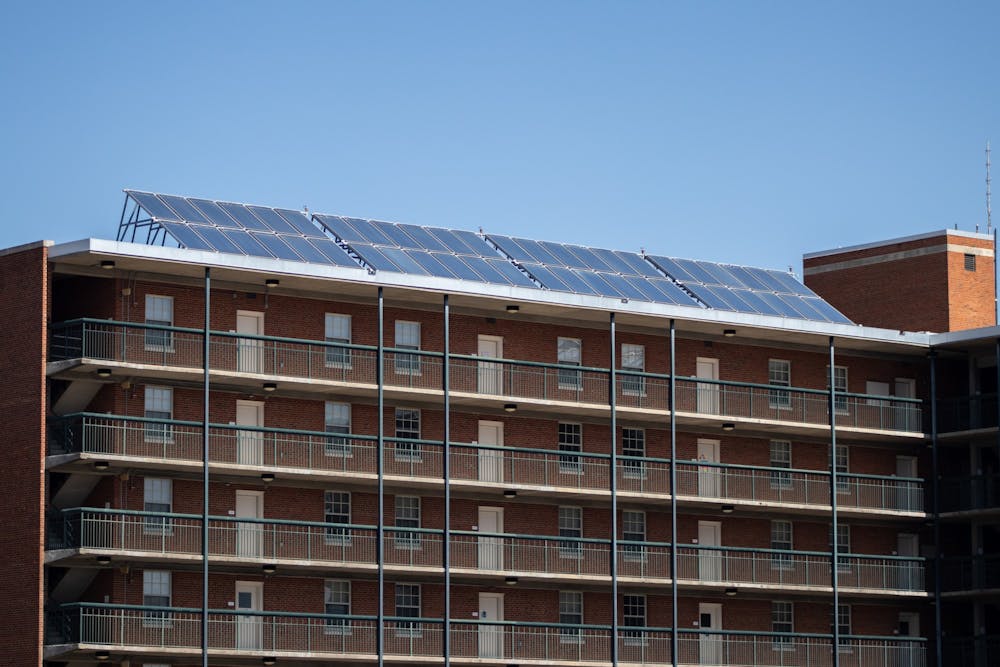In addition to generating cleaner energy, she said investing in solar energy in North Carolina is important for generating jobs, supporting local businesses and diversifying the economy.
“I think that it's really something that can help every N.C. community really reduce their own emission and gain some power back in their own energy generation,” Hallock said.
Tariro Magarira, a member of the UNC Renewable Energy Special Projects Committee, said there are ample opportunities for solar energy expansion across campus. One challenge, however, is that many buildings across campus are in older condition.
"There are a lot of roadblocks," he said.
But he also noted the process of net metering — which allows customers to sell excess energy back to the power grid — as worthy investment across campus.
Noor said solar energy is an investment for homeowners and businesses that is often paid back over time through net metering.
But Duke Energy’s proposed changes to their net metering policy would make it more difficult for individuals to get a return on their investment, which could negatively affect residential solar installation rates in the area.
If Duke Energy moves forward with the plan, Noor said the Chapel Hill area will see little if any increase in residential solar installations.
Supporting solar
Noor said that big energy companies are generally less likely to invest in large-scale solar farm projects because it takes away from their revenue.
However, Wheeless said Duke Energy connected more solar to the power grid in 2021 than in the two years prior.
“For the past few years, we’ve actually done quite well,” he said.
To get the day's news and headlines in your inbox each morning, sign up for our email newsletters.
Noor noted that smaller-scale installations of solar panels are increasing in Chapel Hill, like those on houses or commercial buildings.
“Solar is something that is inherently good," he said. "There is just a lot of benefit to a lot of different people."
Hallock said she believes education about the benefits of solar is important. She wants people to be aware of the ways they can make the grid more resilient and lower their energy bills.
Anne Tazewell, the former SolSmart adviser for Chapel Hill, said it's important for local governments to keep the process for solar installations transparent so that people are not intimidated.
“There's more the town can do with regards to education about the opportunities for solar,” she said. “Local governments could help make people more aware.”
And looking toward the future, North Carolina has room to become a strong solar energy producer.
With 662 installed solar energy systems and 25.619 MW of installed solar capacity in Orange County, Noor expects the generation of energy to steadily increase — if Duke Energy’s net metering policy remains the same.
"There's a lot of potential here, especially in Chapel Hill to rely more on solar," Ember Penney, a student climate activist at UNC, said.
@MaggieM04248222
@DTHCityState | city@dailytarheel.com
CLARIFICATION: An earlier version of this article misrepresented a quote from Lindsey Hallock, who serves as senior regional director for the Southeast region of Vote Solar, said in regards to solar energy policies. The article has been updated to reflect Hallock's views. The Daily Tar Heel apologies for this error.




